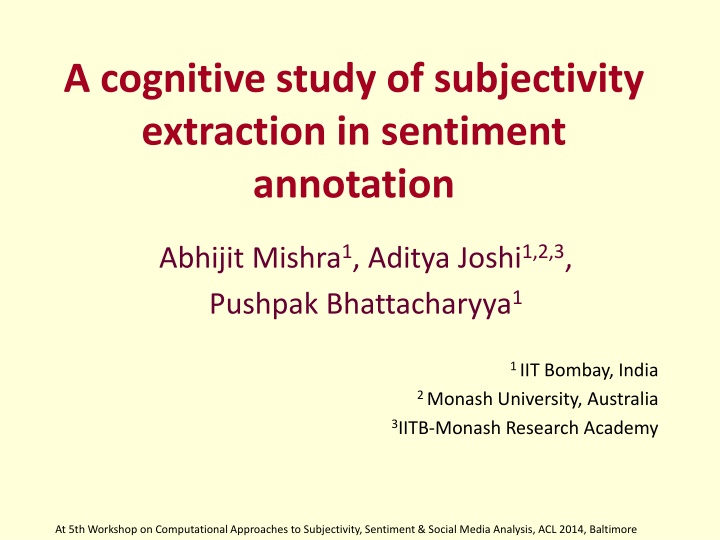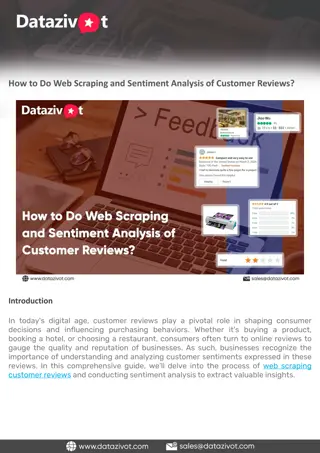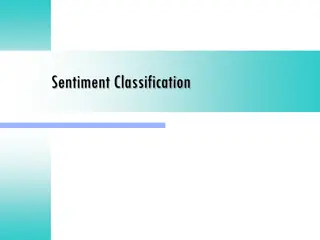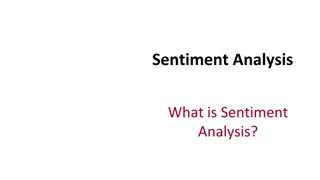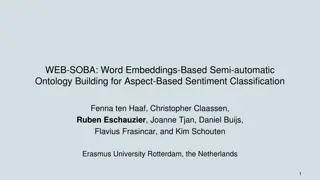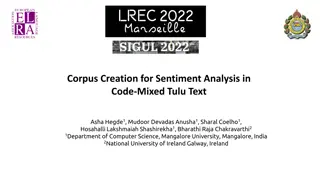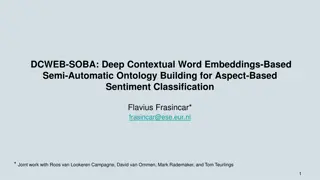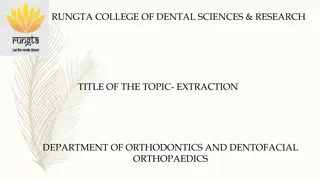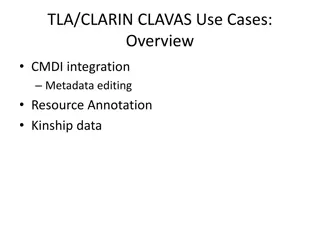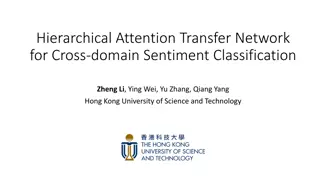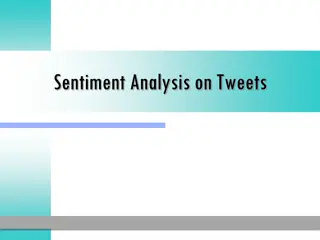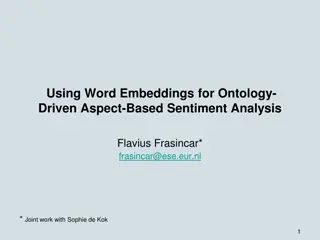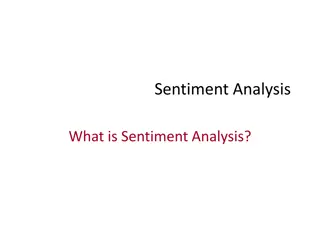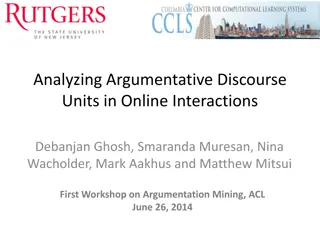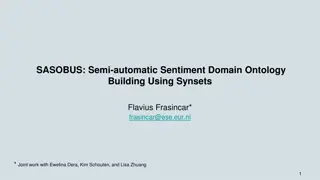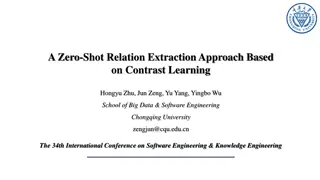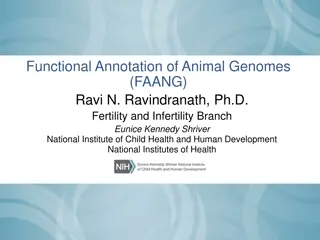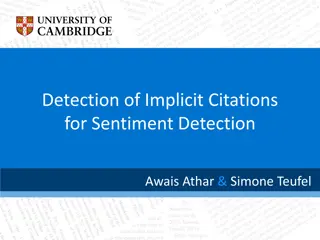Cognitive Study of Subjectivity Extraction in Sentiment Annotation
A cognitive study on extracting subjectivity in sentiment annotation, exploring if humans perform subjective extraction similarly to machines for sentiment analysis. The study investigates sentiment oscillations and different methods adopted based on the nature of subjective documents.
Download Presentation

Please find below an Image/Link to download the presentation.
The content on the website is provided AS IS for your information and personal use only. It may not be sold, licensed, or shared on other websites without obtaining consent from the author.If you encounter any issues during the download, it is possible that the publisher has removed the file from their server.
You are allowed to download the files provided on this website for personal or commercial use, subject to the condition that they are used lawfully. All files are the property of their respective owners.
The content on the website is provided AS IS for your information and personal use only. It may not be sold, licensed, or shared on other websites without obtaining consent from the author.
E N D
Presentation Transcript
A cognitive study of subjectivity extraction in sentiment annotation Abhijit Mishra1, Aditya Joshi1,2,3, Pushpak Bhattacharyya1 1 IIT Bombay, India 2 Monash University, Australia 3IITB-Monash Research Academy At 5th Workshop on Computational Approaches to Subjectivity, Sentiment & Social Media Analysis, ACL 2014, Baltimore
Subjectivity Extraction Goal: To identify subjective portions of text
Motivation Strong AI suggests that a machine must be perform sentiment analysis in a manner and accuracy similar to human beings Do humans perform subjective extraction as well? A cognitive study of subjectivity extraction in sentiment annotation
Outline Sentiment Oscillations & Subjectivity Extraction Experiment Setup Anticipation & Homing Conclusion & Future Work
Sentiment Oscillations & subjectivity extraction Subjective documents may be: Linear: Oscillating: The story was captivating. The actors did a great job. I absolutely loved the movie! The story was captivating. Only if they had better actors. But then I enjoyed the movie, on the whole. Humans perform subjectivity extraction either as a result of anticipation or as homing . Which of the two methods are adopted depends on the linear/oscillating nature of the subjective document.
Experiment Setup (1/2) A human annotator reads a document and predicts its sentiment A Tobii T120 eye-tracker records eye movements while he/she reads the document * No time restriction, no user input required: to minimize errors.
Experiment Setup (2/2) Dataset 3 Movie reviews in English from imdb One linear, one oscillating, one between the two extremes (D0, D1, D2 respectively) Three documents? Really?! To eliminate predictability To reduce errors due to fatigue 12 human annotators (P0, .. P11 respectively)
Observations: Anticipation (1/2) In case of linear subjective documents, an annotator reads some sentences and begins to skip sentences.
Observations: Anticipation (2/2) Document Length Average number of non-unique sentences read by participants D0 10 21 D1 9 33.83 D2 13 50.42
Observations: Homing (1/3) In case of oscillating subjective documents, an annotator (a) first reads all sentences, (b) revisits some sentences again
Observations: Homing (2/3) Considerable overlap between sentences that are read in the second pass All of them are subjective. Participant TFD-SE PTFD TFC-SE P5 7.3 8 21 P7 3.1 5 11 P9 51.94 10 26 P11 116.6 16 56 Reading statistics for D1 TFD: Total fixation duration for subjective extract; PTFD: Proportion of total fixation duration = (TFD)/(Total duration); TFC-SE: Total fixation count for subjective extract
Observations: Homing (3/3) Homing at a sub-sentence level Sarcasm Multiple regressions around the sarcasm portion for participant P1, document D1 Participant P1 does not correctly detect the sentiment of the document Thwarting
Conclusion & Future Work Based on how sentiment changes through a document, humans may perform subjectivity extraction as a result of anticipation or homing Applications: Pricing models for crowd-sourced annotation Sentiment classifiers that incorporate sentiment runlengths
References WikiSent : Weakly Supervised Sentiment Analysis Through Extractive Summarization With Wikipedia, Subhabrata Mukherjee and Pushpak Bhattacharyya, ECML PKDD 2012 A sentimental education: sentiment analysis using subjectivity summarization based on minimum cuts, Bo Pang, Lillian Lee, ACL 2004
